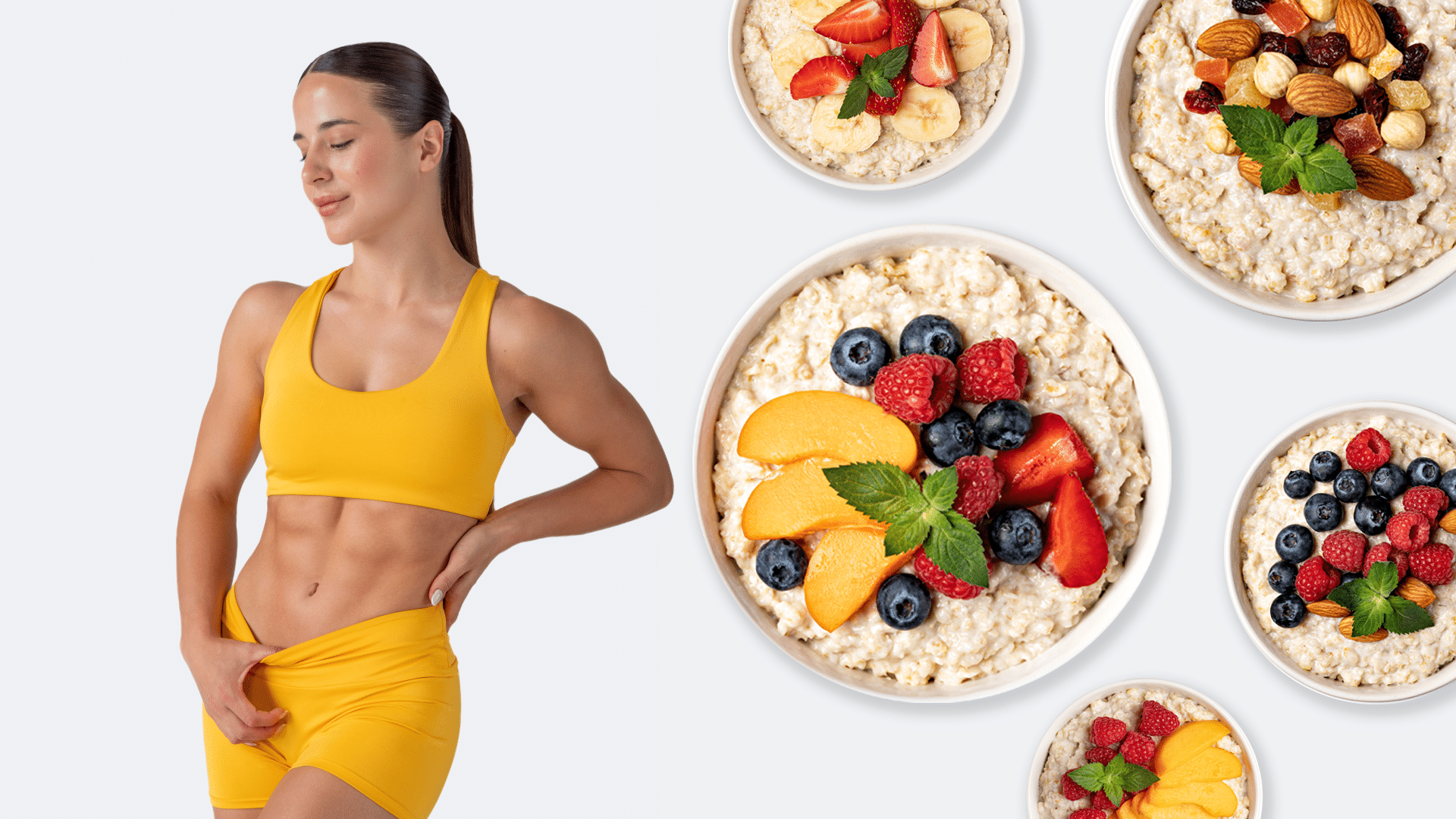Are the benefits of fruit fasting worth the hype, or does it matter more to know whether you can safely do the fast before diving into the fad? Having reservations about new fasting methods is a good thing. You should ask questions before you try any fasting program.
In addition to the purported benefits of fruit fasting, there are also some potential side effects. It helps to understand what happens to your body before you embrace the fast. We’ll show you how to properly fast to ensure you still enjoy the necessary macros on longer programs. Let’s dive into the facts.
What Happens if I Only Eat Fruit for 3 Days?
The benefits of fruit fasting may include:
- Eating fewer calories than burned to lose weight (13, 7)
- Short-term weight loss to kickstart healthy eating plans (21)
- Feeling full and regulating your appetite (24)
- Helping the kidneys flush toxins and waste products out of your body (18, 26)
- More antioxidants and polyphenols to reduce the risk of chronic diseases (14)
However, you must understand why you benefit from fasting and the correct ways to fast with fruit before you start it.
3-Day Fruit Fast Benefits and Potential Setbacks
Fruit fast benefits include that you may lose weight and detox your body. Let’s take a closer look at these potential benefits and why they may occur. Then, you’ll see what evidence suggests that a regular fruit fast isn’t the safest option. Instead, you’ll discover what is a safe fruit fast.
72-Hour Fruit Fast Benefits
Fruit fasting is a newer method where you eat only raw fruits for three days. Some diets allow nuts and raw vegetables, while safer options provide the missing macros. However, let’s see how the fruit fasting benefits unfold.
Fruit Fasting for Weight Loss
Some evidence suggests that you may lose weight on a 3-day fruit flush, but it’s a short-lived truth if you don’t know how to adjust your long-term diet and lifestyle for more sustainable weight loss. Firstly, the 3-day fruit flush diet cuts calories to 900-1,000 daily (13).
WebMD suggests that women should reduce their calories to 1,200-1,500 daily, while men should reduce their calories to 1,500-1,800 daily to lose weight (7). Doing this should result in losing 1-2 pounds weekly. So, cutting your calories to 1,000 or less per day will likely result in weight loss, but whether you’ll keep it off is another issue entirely.
A sudden drop in weight doesn’t generally result in sustainable weight loss. Instead, you should slowly lose 1-2 pounds weekly. A Swansea University study showed that reducing your calories often has only short-term weight loss effects (21).
Unfortunately, your body will compensate for the sudden changes by replenishing short-term weight loss, which is probably mostly water loss, once you increase your calories again. You’ll experience a yo-yo effect if you think you can lose weight from fruit fasting without following the fast with healthy eating habits.
At the same time, fruit fasting encourages you to consume fruits with high water content and to stay well hydrated. Johns Hopkins Medicine suggests water can help you lose weight by stimulating your metabolism to work harder (26).
However, the Mayo Clinic suggests long-term and sustainable weight loss relies on eating healthier foods every day and being active (25). Moderate calorie restriction, a nutritious balanced diet, and physical activity are essential for any weight loss plan.
Betterme will keep you laser-focused on your weight loss journey! Nutrient-packed meal plans, fat-blasting workouts, galvanizing challenges and much more. Try using the app and see for yourself!
Fruit Fasting for Hunger Regulation and Bloating
Ashley Simper, the manager of dietetics at OSF Healthcare, explains how you should approach the high fiber content of fruit fasting with caution (2). Although Malaysian research confirms that soluble dietary fiber can help you feel full and regulate your appetite, drastically increasing your fiber intake can lead to adverse effects (24).
Furthermore, the 2020-2025 Dietary Guidelines for Americans show that 90-97% of individuals don’t consume enough fiber (8). In addition, 85% of adults don’t eat enough fruits and vegetables, which are primary sources of soluble fiber.
Adding fiber from fruit seems logical to fix this. However, Medical News Today warns not to increase fiber suddenly or drastically, as this may cause digestive symptoms such as bloating, cramping, diarrhea, or constipation (23). Although proponents of fruit fasting claim that it can help reduce bloating, too much fiber in a short time can have the opposite effect.
The Academy of Nutrition and Dietetics recommends women eat 25 grams and men eat 36 grams of fiber each day (20). A sudden fiber jump isn’t necessary and may result in unwanted symptoms. A 3-day fruit fast may involve too drastic an increase in fiber for many people.
Fruit Fasting for Detox
Another common claim is that fruit fasting is a reliable detox method. However, your body detoxifies itself naturally on its own. Texas A&M University states that the liver and kidneys are the two primary detox organs (18).
Your body constantly and naturally produces and rids itself of toxins through the liver, kidneys, and other organs. So, how does fruit fasting help this process? Johns Hopkins University says water helps the kidneys flush waste out of your body (26).
Fruit fasting encourages you to stay hydrated and eat fruits that are high in water. So, you provide water to support the kidney’s natural process. Instead, eating high-water-content fruits and drinking eight 8 oz glasses of water per day can help the kidneys flush toxins more easily, and these things can be incorporated into any healthy balanced diet, so a fruit fast is not necessary.
Fruit Fasting for Health Benefits
Fruit fasting gives you an opportunity to move away from the 85% of individuals who don’t eat enough fruit or vegetables (8). You’ll benefit from the additional intake of vitamins, minerals, antioxidants, and polyphenols(10).
The Victoria State Government Department of Health suggests that eating more raw fruits and vegetables may help reduce the risk of developing the following conditions (10):
- Type 2 diabetes
- Heart disease
- Hypertension
- Cancer
- Stroke
How do fruits reduce these risks? Chinese researchers found that fruits have antioxidants that may help reduce heart disease risks (14). Polyphenols in fruit are essential in your daily diet because your body can’t make or store them. They can be found in various fruits, including grapes, apples, pomegranates, berries, and avocados (14).
However, you don’t need to do a fruit fast to benefit from antioxidants and polyphenols – simply include more fruit in your regular, healthy, balanced diet.
Read more: Green Tea Intermittent Fasting: Benefits and Side Effects
What Are the Symptoms of the Fruit Fast Diet?
A fruit fast may cause symptoms, particularly in those who aren’t used to fasting. For example, too much fiber consumed too fast may cause bloating, gas, diarrhea, constipation, or other gastrointestinal symptoms (23). You may also experience other symptoms when following a fruit fast.
The 2020-2025 Dietary Guidelines for Americans emphasize including all essential macro and micronutrients in a healthy diet (8). Two essential macronutrients you won’t get enough of during a fruit fast are protein and healthy fats.
UCLA Health suggests a protein deficiency may cause brittle hair, hunger pangs, weakness, stress fractures, muscle weakness, memory problems, mood changes, and a poor immune system (3). You may get away with avoiding protein for three days if you’re an otherwise healthy adult, but longer fasts can be dangerous. In addition, even short-term inadequate protein intake is likely to result in some muscle breakdown.
Too much or too little fat in your diet is also not good and may have adverse effects. The National Library of Medicine suggests that eating too much unhealthy fat could raise your bad cholesterol levels and blood pressure, or increase your risk of heart disease (17).
However, healthy fats, such as monounsaturated and polyunsaturated, are essential nutrients that every person should eat as part of a well-balanced diet (8). Balance is how you achieve healthy eating habits.
Unfortunately, too little healthy fat in your diet may cause achy joints, hunger, fatigue, brain fog, weakened immunity, dry skin, hair loss, or irregular menstruation (1). At the same time, a lack of dietary fat may cause vitamin deficiencies. Fat helps absorb fat-soluble vitamins like A, D, E, and K.
Ultimately, skipping essential nutrients may cause symptoms related to vitamin deficiencies, a lack of protein, or too little fat in your diet.
How Long Should You Do a Fruit Fast?
You should always talk to your healthcare provider before you start any restrictive diet or fast. They’re not safe for everyone. Fasts that only allow a limited number of foods or restrict entire food groups should not be done for more than 3 days.
Alternatively, use modified fruit fasts that welcome all the essential macronutrients you need daily, including protein and healthy fats (8).
BetterMe app will kick you out of the mental funk, shake off your extra weight, rid you off your energy-zapping habits, and help you sculpt the body of your dreams. Intrigued? Hurry up and change your life for the better!
The Fruit Fasting Diet Plan
Various types of fruit fast exist, so let’s now look at some examples with the suggested fruits to use and other facts you need. Remember to check with your healthcare practitioner before you start any fasting program.
What to Avoid on Fruit Fasting
Let’s start with what’s usually recommended to avoid on fruit fasts (13, 22):
- Alcohol
- Caffeine
- Dairy
- Frozen, canned, or dried fruit
- Meat
- Processed or cooked food
- Seasoning
- Soda
- Starchy vegetables
- Sweetener
- Tea
Which Fruit Is the Best for Fasting?
The Health Reporter suggests the following are the best fruits for fruit fasting (12):
- Apples
- Berries
- Grapes
- Mangoes
- Melons
- Oranges
- Papaya
- Pineapple
Fruits that have a higher water concentration are instrumental for fruit fasting (12). These fruits also contain various vitamins, minerals, and other nutrients. Bananas are fiber-rich, but they have a lower water content and should be balanced with other fruits with higher water content (5).
Which Vegetable Is the Best for Fasting?
The Health Reporter suggests including non-starchy vegetables, such as (12):
- Courgettes
- Leafy greens
- Peppers
- Tomatoes
Including vegetables in a fruit fast will allow for some variety, but it doesn’t change the fact that essential macronutrients such as protein and fat are lacking.
Other Healthy Fruit Fast Diet Rules
If you want to do a fruit fast more safely, you should follow these simple guidelines to consume more of all the essential macros (13, 12):
- Use a tablespoon of olive or flaxseed oil to dress salads, and add nuts and seeds to get protein and healthy fat, including walnuts and almonds.
- Consume a protein shake in the morning to get the macronutrient, and/or add 6 oz of lean protein for dinner.
- Use hemp, soy, brown rice, or yellow pea protein powders to supplement your fast with plant-based sources of essential nutrients.
- Drink eight 8-12 oz glasses of water per day to help your kidneys detox the body while enjoying the nutrients in fruits and vegetables (26).
- Speak to your healthcare provider about using supplements for certain vitamins and minerals that you may be missing.
- Practice light exercises such as walking every day during your fruit fast, as vigorous activities are challenging on such a low-calorie program.
3-Day Fruit Fast
A 3-day fruit fast is the most popular. You have two options if you wish to follow a fruit-only fast. The second option lets you supplement your fruit with raw vegetables and nuts, but it is still highly restrictive and not anywhere close to being a healthy, balanced diet. However, the first option is even more restrictive, and we don’t recommend this.
3-Day Fruit Fast Option 1: Mono-Fruit Fast
A mono-fruit fast is the strictest form of fruit fast and only allows you to choose one fruit to eat for three days (12). Choose from the following:
- Apples
- Grapefruit
- Grapes
- Melons
- Oranges
This version is simple, but incredibly restrictive and is probably not a good idea for anyone.
3-Day Fruit Fast Option 2: Multi-Fruit Fast
This version allows you to eat multiple different types of fruit and sometimes includes vegetables and supplemental nuts for protein and healthy fat. It’s still highly restrictive and not a healthy or balanced diet, so if you attempt it, you should only do so for a short period of time.
Read more: Intermittent Fasting and Running: A Winning Combination or a Terrible Mistake?
7-Day Fruit Fast
A 7-day fruit fast could follow a version of the fruit flush diet. The fruit flush diet includes some protein and fat each day to help you eat all the essential nutrients (13). For example, use the first step for day one and the next for days two and three. Then, extend your fruit fast with a healthy, nutritious diet for four more days by following these steps (13):
Step 1: Gradual Changes on Day 1
The first step of the fruit flush is to drink a protein-rich shake every two hours, followed by an 8 oz glass of water (13). Start at 8 am and finish at 4 pm on the first day. The protein shake should be nutritionally dense to help you get all your essential macronutrients.
You could use protein powders or raw ingredients in your shakes, as long as they provide fat, fiber, protein, and some carbs. Here are three recipes with good macronutrient content (6, 4, 19):
Finish your day with a dinner that includes a 3-6 oz piece of lean protein or an egg white with a salad using the recommended vegetables. Add flaxseed or olive oil to your salad, or swap the salad for half an avocado.
Step 2: Fruit Flush on Days 2-3
Step two is stricter between 8 am and 4 pm and cuts back on the lean protein dinner plans. Follow these rules on days 2-3 (13):
- Eat a 100-calorie serving of your chosen fruit every two hours
- Enjoy a salad using the recommended vegetables or half an avocado for dinner
- Add a protein shake to dinner each night
Step 3: Nutritionally-Complete Follow Up on Days 4-7
The final step of the 7-day fruit flush diet requires you to follow the 3-day flush with a nutritionally-complete diet for four days (13). You’ll also increase your physical activity and limit your calories each day to welcome a healthy, nutritious lifestyle for the remainder of this flush. Make sure you eat a well-balanced diet with limited calories during this period (8).
30-Day Fruit Fast
A 30-day fruit fast is more challenging. Therefore, we recommend a modified version of the 5:2 fasting method instead (16). Our modified recommendation follows an intermittent fasting schedule while allowing you to enjoy whole fruits and vegetables on fasting days.
The rules are simple enough: eat a healthy, wholesome diet, exercise five days each week, and use fruit fasting on two non-consecutive days. Choose a mono or multi-fruit fasting to narrow your calories significantly on the two fasting days.
On the 5:2 diet, it is normally recommended to limit your calories to 500-600 on the two fasting days (16). A calorie chart may help you keep track of how many calories you eat with your chosen fruits on fasting days (11). Continue the cycle for 30 days.
For more fasting tips and guidance:
When you only eat fruit for 72 hours, your body will lack the essential nutrients recommended by the 2020-2025 Dietary Guidelines for Americans (8). You may become nutrient deficient and experience symptoms such as weakness, hunger, fatigue, mood changes, and brain fog (3, 1). You may also lose weight, but it’s likely to be mostly water and some muscle. Fruit fasting can make you lose weight or water weight quickly by cutting your calories to 900-1,000 daily (13). Most women only need to reduce their calories to 1,200-1,500 per day and most men need to reduce theirs to 1,500-1,800 to lose 1-2 pounds per week(7). Eating only fruit for 2 weeks is not healthy or balanced and it’s likely to result in nutrient deficiencies. If you do lose weight, it’s likely to be mostly water and muscle. It’s best to stick to a healthy balanced diet that creates the recommended calorie deficit for two weeks or longer, as extreme calorie deficits may only have temporary benefits but many drawbacks (21). Fruit fasting can result in short-term weight loss, but it is likely to be mostly water and some muscle. For more sustainable weight loss, you need to create a moderate calorie deficit with a healthy balanced diet and physical activity that you can stick to in the long term. A 21-day fruit fast is also known as the Daniel Fast Diet. You limit yourself to fresh fruits, vegetables, nuts, seeds, whole grains, and legumes for three weeks, while avoiding animal products or preservatives. One study suggested that the Daniel Fast improved some cardiovascular and metabolic risk factors in the short term, but more research is required (9). FAQs
What happens to your body when you only eat fruit for 72 hours?
How much weight will I lose if I only eat fruit for 2 weeks?
Can you lose weight by fruit fasting?
What is the 21-day fruit fast?
The Bottom Line
The purported benefits of fruit fasting are appealing, as the nutrients in fruit may benefit you. However, restrictive fruit fasts aren’t good for your health or nutritional needs. Instead, you should include more fruit in your healthy, balanced diet to get all the benefits with none of the risks.
DISCLAIMER:
This article is intended for general informational purposes only and does not serve to address individual circumstances. It is not a substitute for professional advice or help and should not be relied on for making any kind of decision-making. Any action taken as a direct or indirect result of the information in this article is entirely at your own risk and is your sole responsibility.
BetterMe, its content staff, and its medical advisors accept no responsibility for inaccuracies, errors, misstatements, inconsistencies, or omissions and specifically disclaim any liability, loss or risk, personal, professional or otherwise, which may be incurred as a consequence, directly or indirectly, of the use and/or application of any content.
You should always seek the advice of your physician or other qualified health provider with any questions you may have regarding a medical condition or your specific situation. Never disregard professional medical advice or delay seeking it because of BetterMe content. If you suspect or think you may have a medical emergency, call your doctor.
SOURCES:
- 8 Signs You’re Not Eating Enough Fat (2022, livestrong.com)
- 72-Hour Fruit Diet: Myths vs. Facts (2023, newsroom.osfhealthcare.org)
- Are You Getting Enough Protein? Here’s What Happens if You Don’t (2022, uclahealth.org)
- Banana Protein Shake (Healthy Recipe) (2023, onewholesomelife.com)
- Bananas | The Nutrition Source | Harvard T.H. Chan School of Public Health (n.d., hsph.harvard.edu)
- Best Protein Shakes (30+ Flavors) (2023, fitfoodiefinds.com)
- Caloric Deficit: What to Know (2023, webmd.com)
- Dietary Guidelines for Americans 2020-2025 (2020, dietaryguidelines.gov)
- Effect of a 21-Day Daniel Fast on Metabolic and Cardiovascular Disease Risk Factors in Men and Women (2010, ncbi.nlm.nih.gov)
- Fruit and Vegetables – Better Health Channel (n.d., betterhealth.vic.gov.au)
- Fruit: Calories and Calorie Chart (n.d., calories.info)
- Fruit Fast: What Is It, Benefits, and Risks (2024, healthreporter.com)
- Fruit Flush Diet Plan Review: Detoxing With Fruit? (2023, webmd.com)
- Fruits for Prevention and Treatment of Cardiovascular Diseases (2017, ncbi.nlm.nih.gov)
- Intermittent Fasting: What it Is, and How Does it Work? (n.d., hopkinsmedicine.org)
- Is the 5:2 Diet a Good Way to Lose Weight? Ask the Experts (n.d., bhf.org.uk)
- Low-Fat Diet – StatPearls – NCBI Bookshelf (2023, ncbi.nlm.nih.gov)
- ORGAN SYSTEMS: Detoxification – Peer Program (n.d., vetmed.tamu.edu)
- Peanut Butter Protein Shake (2019, chealseasmessyapron.com)
- Position of the Academy of Nutrition and Dietetics: Health Implications of Dietary Fiber (2015, jandonline.org)
- Reducing Calorie Intake May Not Help You Lose Body Weight (2017, ncbi.nlm.nih.gov)
- The Fruit Flush Diet (2009, everydayhealth.com)
- Too Much Fiber: Symptoms and Treatment (2018, medicalnewstoday.com)
- Unravelling the Effects of Soluble Dietary Fibre Supplementation on Energy Intake and Perceived Satiety in Healthy Adults: Evidence from Systematic Review and Meta-Analysis of Randomised-Controlled Trials (2019, ncbi.nlm.nih.gov)
- Weight Loss: 6 Strategies for Success (2021, mayoclinic.org)
- Yes, Drinking More Water May Help You Lose Weight | HUB (2020, hub.jhu.edu)











